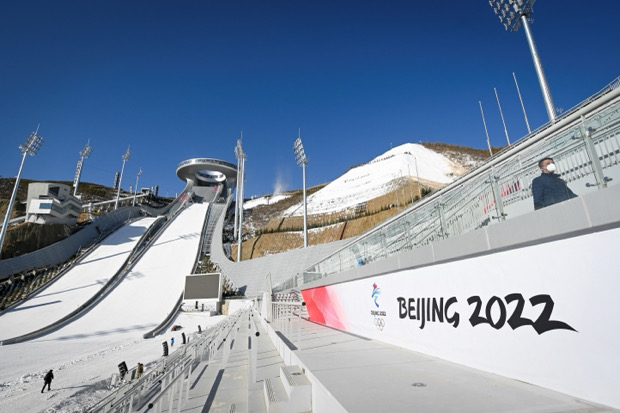We may have to add the Winter Olympics to the long list of things that are in danger of disappearing due to climate change. According to a recent United States study, only one of the 21 past host cities would be able to host the competition in optimal conditions by the end of the century.
Skiing, bobsled, ice hockey, figure skating — Olympic fans are probably looking forward to the 2022 winter edition, which will open on Feb. 4 in Beijing. But they may have to prepare themselves to say goodbye to some of the legendary events of this competition in the decades to come. This is the warning message of an international team of researchers from the University of Waterloo in Canada.
Published in late December, the study reviewed historical climate data from the 1920s to the present, as well as different climate change scenarios developed for the period 2050 to 2080. Interviews with 339 elite athletes and coaches from 20 countries were also conducted. According to 89% of them, climate change is affecting competition conditions, while 94% fear that it will have an impact on the future development of their sport.

“The world of winter sport is changing as climate change accelerates, and the international athletes and coaches we surveyed are witnessing the impacts at competition and training locations, including the Olympics,” said Daniel Scott, a professor of Geography and Environmental Management at Waterloo, in a press release.
In the space of a century, the average temperature in February (the month in which the Winter Olympics are held) has risen steadily from -0.4°C between 1920 and 1950, to 3.1°C between 1960 and 1990 and to 6.3°C from the beginning of the 21st century to the present.

Respecting the Paris Agreement could save the future of several Olympic cities
“Climate change is altering the geography of the Winter Olympic Games and will, unfortunately, take away some host cities that are famous for winter sport. Most host locations in Europe are projected to be marginal or not reliable as early as the 2050s, even in a low emission future,” said Robert Steiger of the University of Innsbruck in Austria and co-author of the study.
According to the authors of the work, only one city (of the 21 that have hosted the Winter Olympics in the past) would be capable of supporting the winter sports featured in this competition in the next 50 years. That would be the city of Sapporo, in Japan.
Meeting the carbon emission targets set by the Paris Agreement, however, would increase the number of climate-reliable host cities, the research finds.
“No sport can escape the impacts of a changing climate. Achieving the Paris Agreement targets is critical to save snow sports as we know it and ensure there are places across the world to host the Winter Olympics,” said Prof. Daniel Scott. JB
RELATED STORIES:
Cats are responsible for over 100 fires in three years in South Korea
Shopping on social networks could reach $1.2 trillion by 2025


